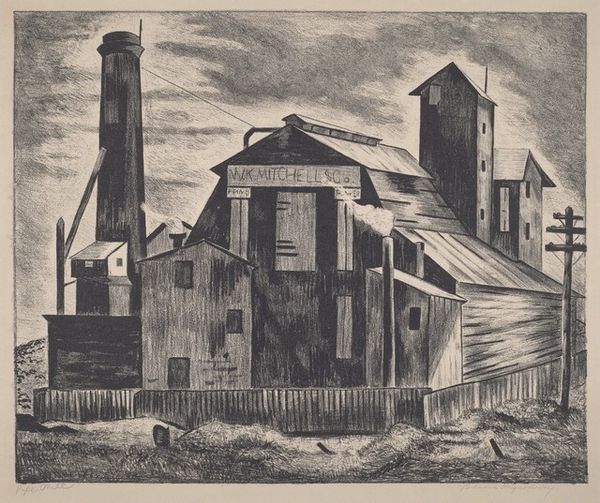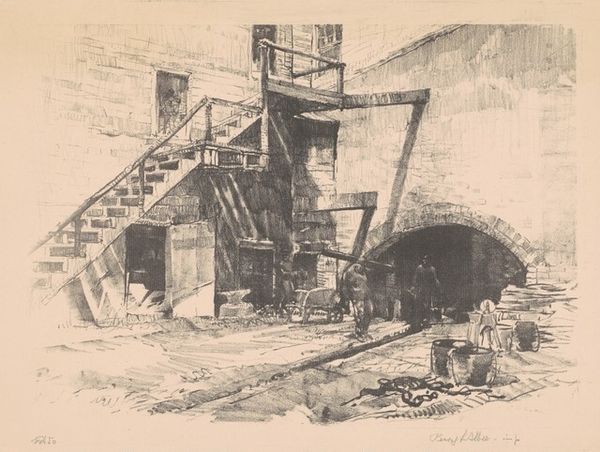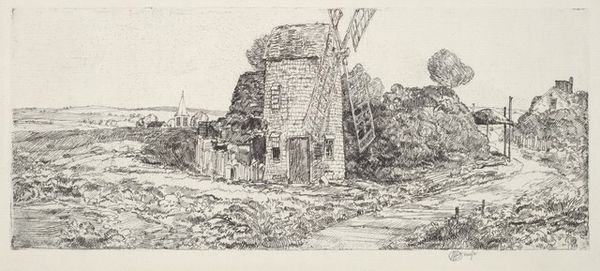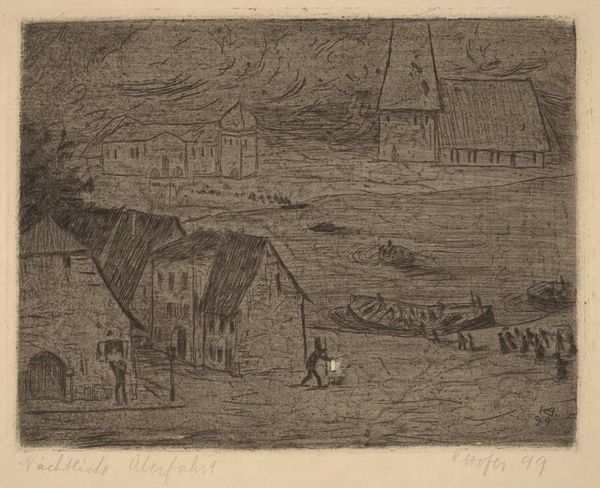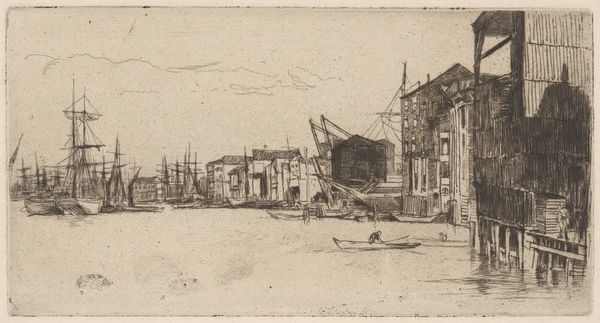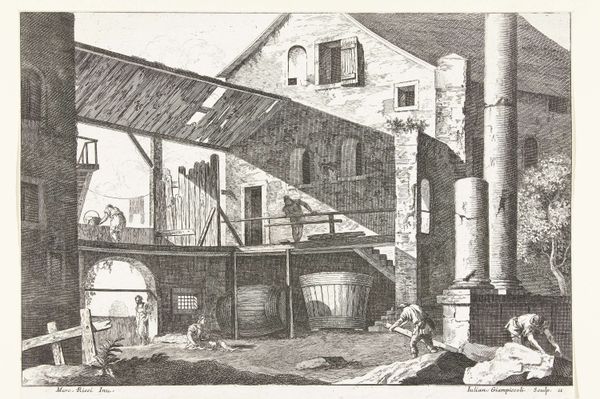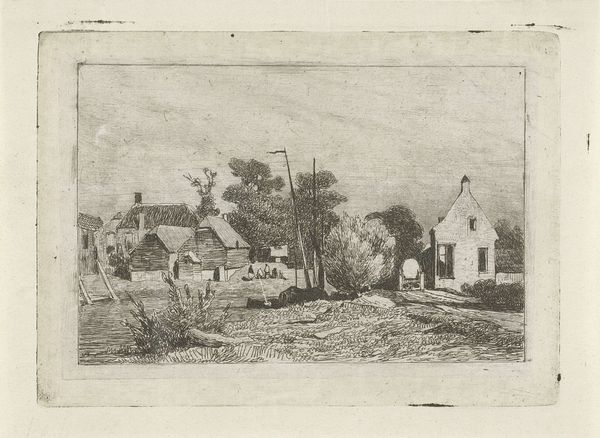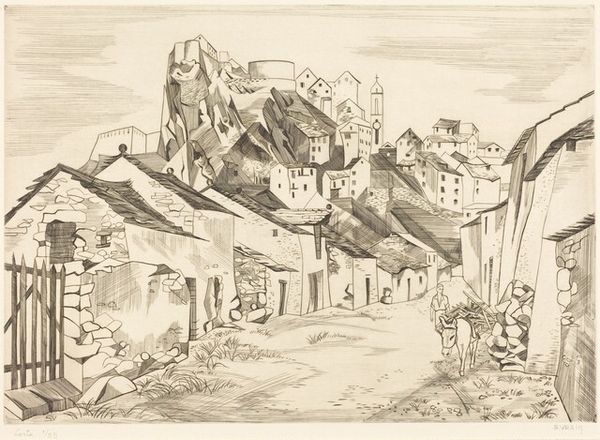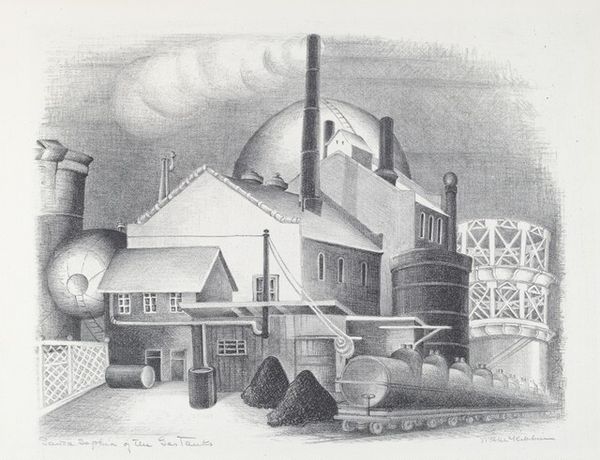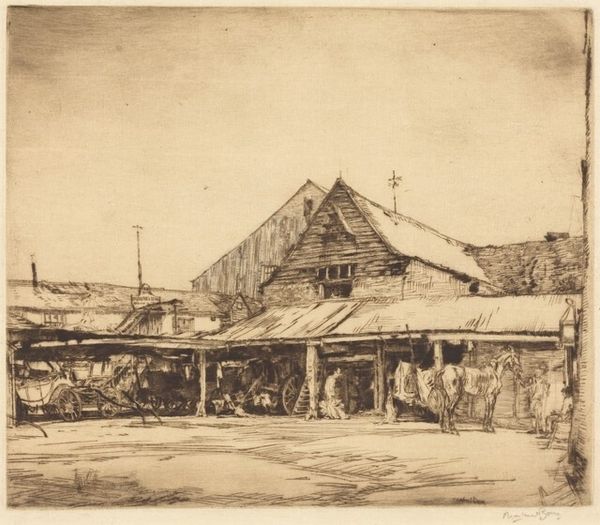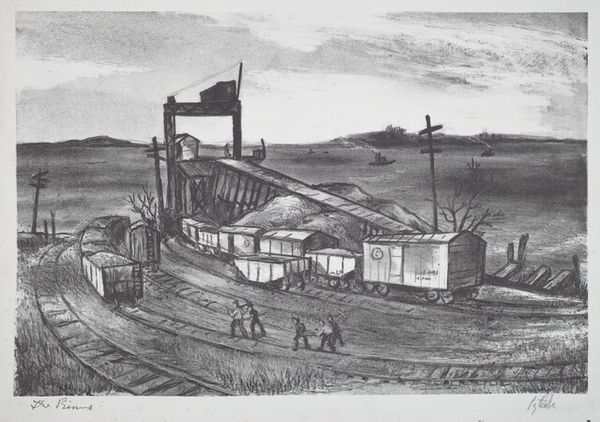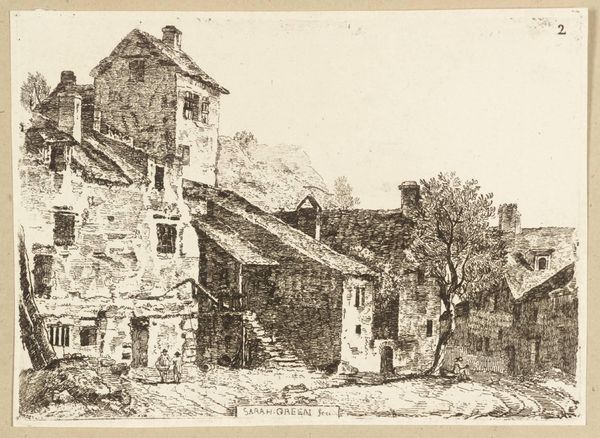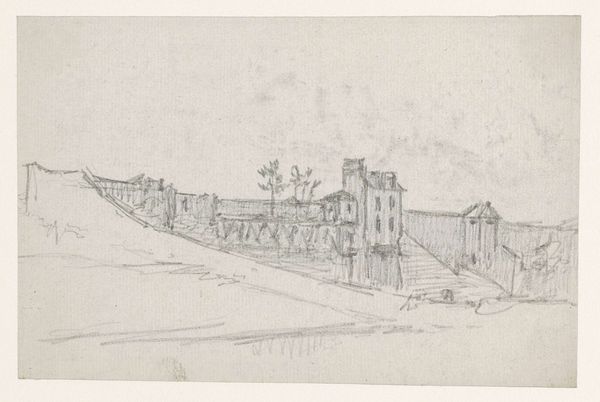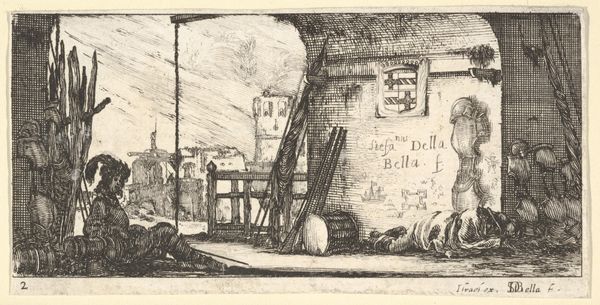
#
pen and ink
#
landscape illustration sketch
#
ink drawing
#
mechanical pen drawing
# print
#
pen sketch
#
pencil sketch
#
old engraving style
#
sketchwork
#
pen-ink sketch
#
pen work
Dimensions: image: 15.4 × 23.8 cm (6 1/16 × 9 3/8 in.) sheet: 21 × 29.4 cm (8 1/4 × 11 9/16 in.)
Copyright: National Gallery of Art: CC0 1.0
Curator: Here we have Abraham P. Hankins’s "Untitled (City Playground)," a print dating from approximately 1938 to 1940. Editor: It hits you right away, doesn’t it? Sort of melancholic but also pulsing with energy, like a forgotten dream. The world tilts slightly, teetering but holding on. Curator: The composition employs a pronounced use of perspective, creating a somewhat unsettling visual dynamic. Notice how the structures lean and overlap, compressing the pictorial space and directing the eye toward the industrial form dominating the background. Editor: Exactly! The scale is playful, and you have to laugh at how huge that odd building in the background is; it sort of overshadows the small moments of childhood. I keep looking for a ray of sun cutting through those clouds to land on the children playing in the foreground. Curator: Hankins uses stark contrasts between light and shadow achieved through ink drawing to articulate the volumes of the buildings. The textural detail, especially in the rendering of the clapboard siding and the industrial tower, is remarkably intricate. Editor: All those fine lines seem to hum, like radio static before the music begins. Look at the way he renders the children in motion – you almost feel like you're there, breathing the same air. I think he sees this little burst of vitality as almost an act of defiance in such a grim environment. Curator: One could argue that the print presents a discourse on urban life, contrasting the innocence and vitality of childhood with the imposing presence of industrial architecture, embodying the socio-economic tensions prevalent during the late 1930s. Editor: Right. He’s taking a real slice-of-life moment and immortalizing it, right there in that jumble of ink. And this particular take feels true and real and not at all sentimental. He knows they have heart, that they’re persevering through it all. Curator: Ultimately, the work demonstrates Hankins’s skillful handling of printmaking to create a visually arresting depiction of an urban environment, one that remains relevant to discussions about industrialization and its impact on everyday life. Editor: And maybe to the power of human connection and simple joys amidst the concrete and steel. Yeah, it definitely leaves you with something to think about.
Comments
No comments
Be the first to comment and join the conversation on the ultimate creative platform.
